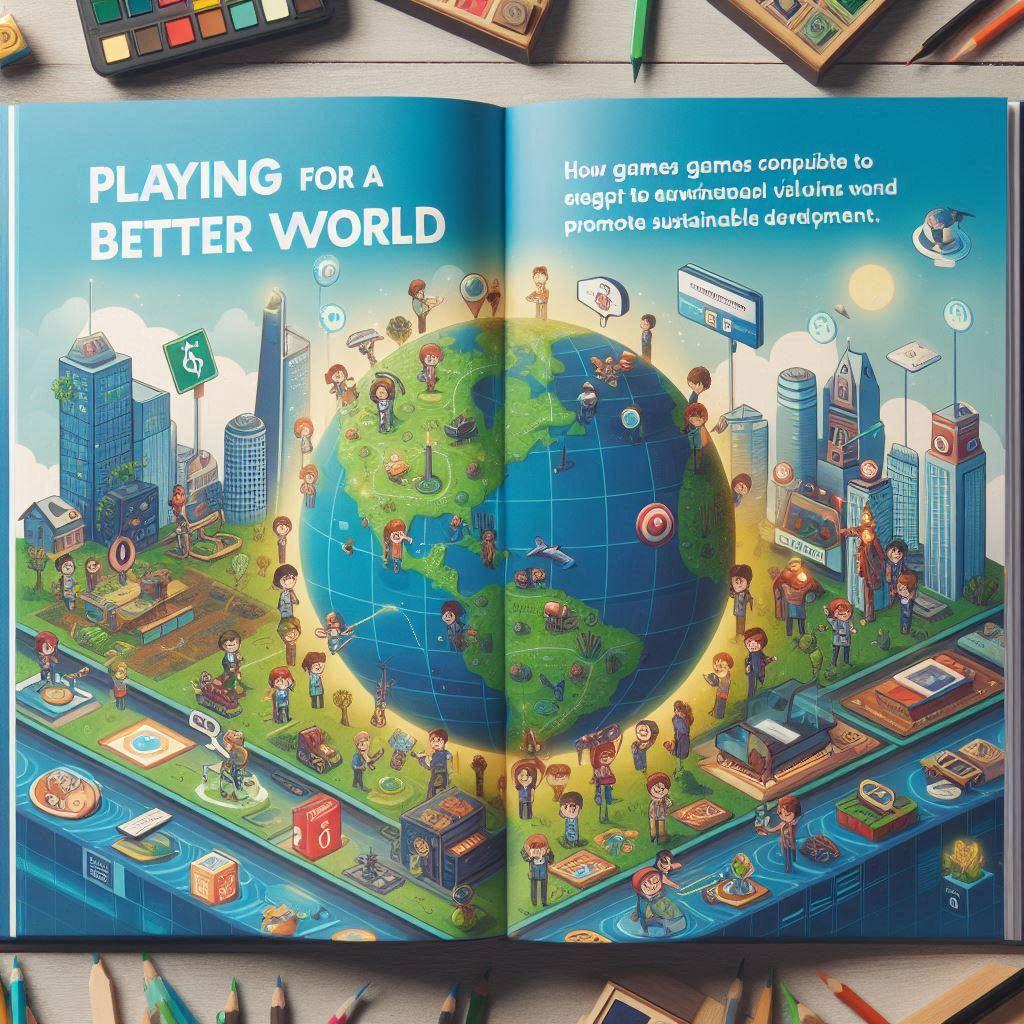Introduction: Hello, Go Sharpener Community! 🎮🌍
Games are not just for fun—they can be powerful tools for education and change. Today, I want to share how games can contribute to Sustainable Development Goals (SDGs), making learning about sustainability engaging and impactful.
The Power of Educational Games: Educational games are designed to teach specific skills or knowledge through interactive experiences. By incorporating elements of sustainability, these games can educate players about environmental issues and inspire them to take action. Here are some examples:
- Climate Action Simulations: Games like "Climate Challenge" allow players to simulate running a country and making policy decisions that impact the environment. These games teach players about the complexities of climate action and the importance of sustainable policies.
- Recycling and Waste Management Games: Titles like "Sort It Out!" and "Garbage Dreams" educate players on the importance of recycling and proper waste management, making these practices second nature.
Environmental Games for Real-World Impact: Some games go beyond education and encourage players to take real-world actions for the environment. These games often include challenges and activities that promote sustainability:
- Eco-Friendly Challenges: Mobile apps like "EcoChallenge" provide daily tasks that encourage eco-friendly behaviors, such as reducing plastic use or conserving water. Players earn points and badges for completing challenges, motivating them to make sustainable choices.
- Citizen Science Games: Games like "Foldit" and "iNaturalist" involve players in scientific research and data collection. By participating in these games, players contribute to environmental research and conservation efforts.
My Experience with Sustainable Gaming: As a participant in Go Sharpener, I have explored various sustainable games and experienced their positive impact. One of my favorites is "Minecraft: Education Edition," where I learned about renewable energy and sustainable agriculture through creative building projects. This game not only taught me important concepts but also inspired me to apply these ideas in real life.
The Future of Sustainable Gaming: The potential for games to contribute to sustainable development is immense. As technology advances, we can expect to see even more innovative games that educate, engage, and inspire players to take action for a better world.
Conclusion: Games are a powerful medium for promoting sustainable development. They can educate, engage, and inspire players to make positive changes in their communities and beyond. By integrating sustainability into gaming, we can create a fun and impactful way to learn about and contribute to the SDGs.

